Community Engagement
Our teams strengthened
collaboration with partners to
support community-engaged research
and be active in our community.
Streamlining Communication to Support Families With Young Children
The early childhood years are critical for health and development, but the health delivery systems that serve families during this time are often siloed and fragmented. Integrating health care with community home visiting services is a promising strategy to holistically approach a family’s care and improve maternal–child health outcomes across diverse populations.
With that in mind, PolicyLab developed a new model of this integrated health care—the Community Clinical Systems Integration (CCSI) initiative—creating a bridge and consistent communication between nurse home visitors, families and pediatric providers at CHOP.
Early implementation findings suggest that a stronger, more coordinated care team that extends the health system’s reach into the communities it serves offers tremendous opportunity to move the needle on complex public health issues.
Through intentional integration of these services, Tara Dechert, MS, and the CCSI team seek to create efficiencies and reduce burden, enhance coordination of care for patients, improve the sustainability of quality services and, most importantly, improve health outcomes for families served.

“PolicyLab is a true partner that creates space for those involved in research to understand processes, explore lessons learned, and take actionable next steps. I’ve seen firsthand how the feedback shared by caregivers, nurse home visitors, and pediatric providers translates into outcomes and opportunities for further growth.”
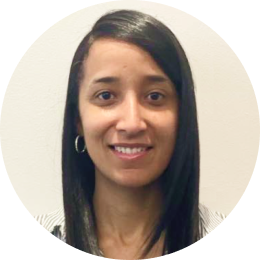
Erin Graham, DNP, FNP-BC, IBCLC
Elevating Community Voices Through Partnered Research Projects
Last year, we launched our Community Partnerships in Research Program, which seeks to promote health equity in the Greater Philadelphia area by building and deepening community–academic partnerships on research projects aimed to improve health outcomes among children and families.
The announcement of our year-two cohort engaged the research community and generated media coverage. The Philadelphia Inquirer featured awardees Jillian Baker, DrPH, EdM, executive director of the Center for Parent & Teen Communication at CHOP, and Joel Austin, president and CEO of Daddy University Inc., in an in-depth piece on their partnership and work focused on building communication strategies among Black fathers and their youth.
Additionally in year two, we funded grants spanning topics including: addressing interpersonal violence among LGBTQI adolescents and young adults; understanding the effect of adultification on the medical and mental health outcomes of Black girls; and mitigating the impact of implicit bias and racism in the NICU.
PolicyLab has proudly funded eight projects since the program’s inception.
Learn More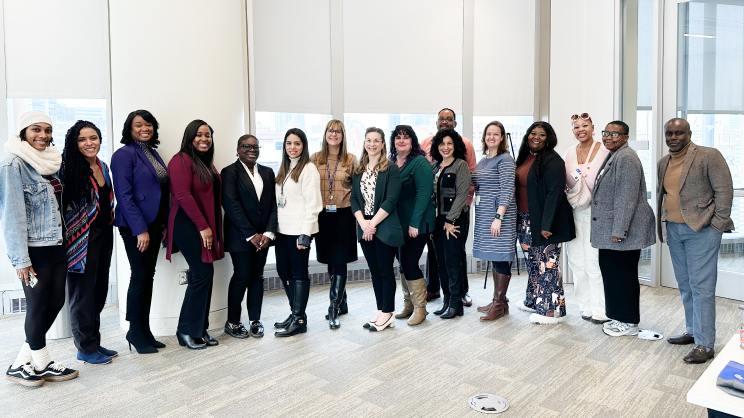
Getting Involved in Our Community
PolicyLab team members value the opportunity to give back to our surrounding community through a variety of events and efforts throughout the year. Along with our colleagues at CHOP Clinical Futures, we held our annual virtual holiday toy drive for Lutheran Settlement House (LSH), which serves children, adults and families in the city. Our team members fulfilled gift wish lists for 2 families and 19 teenagers participating in LSH’s Bilingual Domestic Violence Program.
This year, more team members joined the Reading Buddies Program volunteer group, a PolicyLab program at Alain Locke Elementary School in West Philadelphia started in 2015. Team members travel to the school weekly to read one-on-one with second to fourth grade students.
Additionally, we were thrilled to connect with local youth to share resources. We hosted an event with Philadelphia High School for Girls students to discuss careers in public health research. We also expanded our efforts to share adolescent health information during Teen Health Week from CHOP’s location in Philadelphia to include the King of Prussia Hospital.
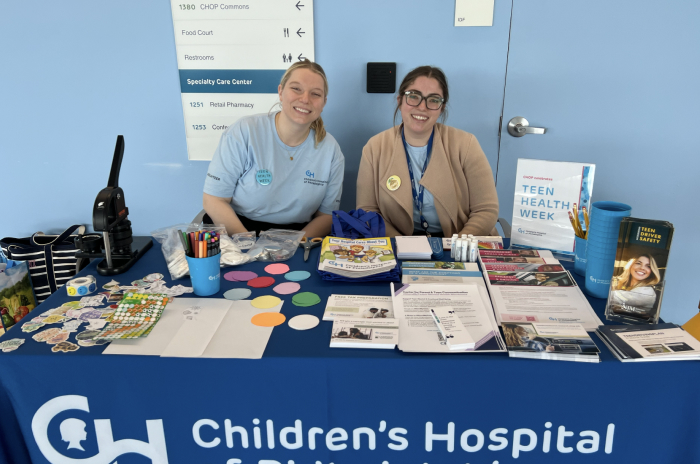
Engaging the Next Generation of Public Health Researchers
This year, PolicyLab’s Visibility & Voice Committee (VVC)—a team at PolicyLab who works to uplift the voices of racial and ethnically diverse people while advancing racial equity, inclusion and cultural celebration—held the center’s inaugural Undergraduate Student Research Day. As part of this event, the VVC hosted 17 undergraduate students from seven universities for a day filled with networking and exploration with more than 30 PolicyLab professionals contributing to the experience.
Throughout the day, students had the opportunity to learn about our research, participate in resume writing and interviewing workshops, and network with PolicyLab team members. This event serves as a platform to introduce underrepresented minority students to exciting career opportunities in the world of public health research.
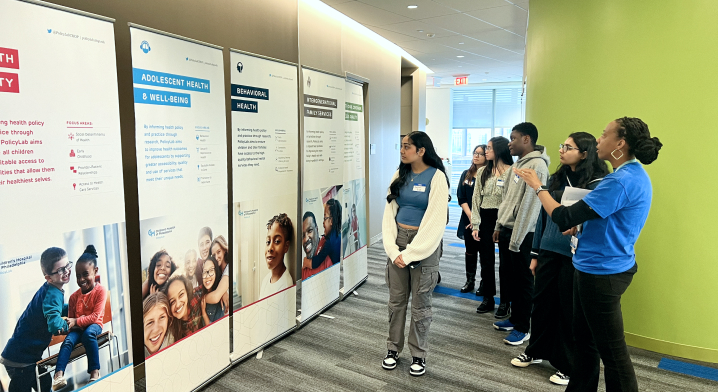
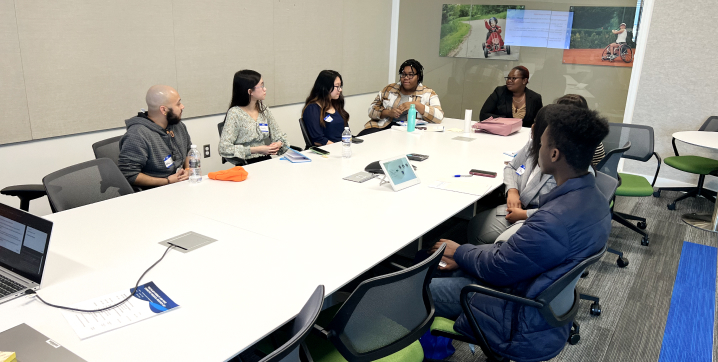
“The Research Day event gave me a much clearer picture of the kind of work that happens at PolicyLab and the potential career options in policy and research. Afterward, I connected with one of the speakers on the PolicyLab team and we were able to talk about her career path and the current projects she was working on. I found it to be so helpful in figuring out what I wanted to do in my career.”
